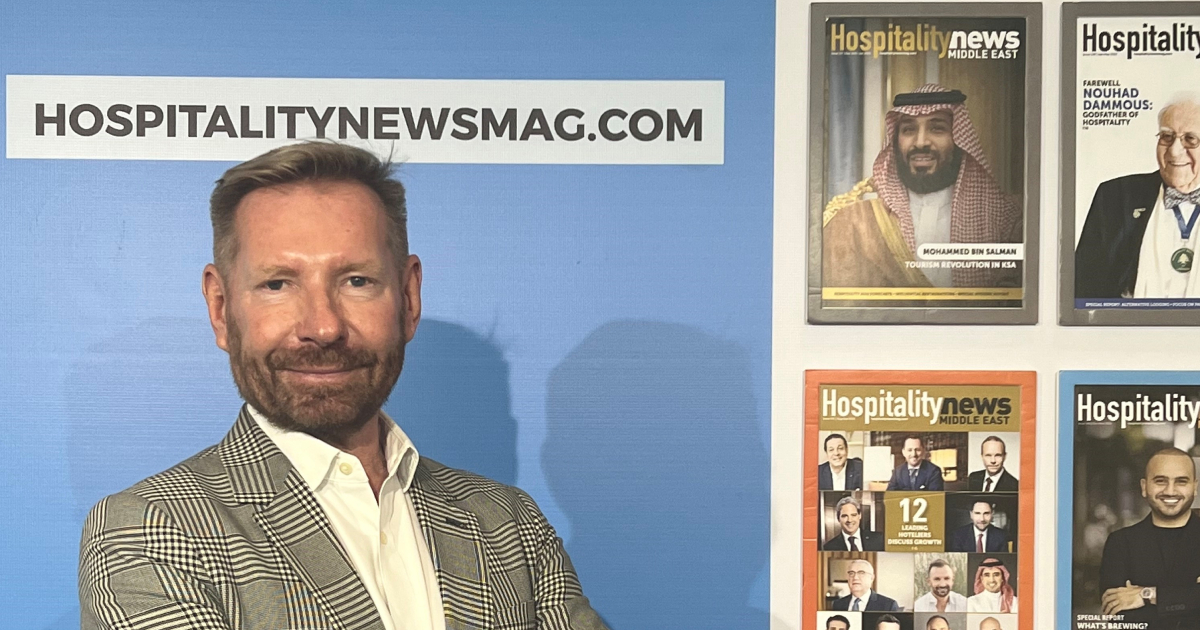Laurent Damiens, COO of CNIEL, sheds light on the current trends in dairy and explores sustainability and innovation within the industry.
What are the current trends in dairy consumption and how have they evolved over the past decade?
Dairy consumption has been very increasing in the last decade, especially in China, India, and Southeast Asia in Europe and the US the demand is quite stable. But overall, average annual growth of 2 percent has been recorded in the last 10 years. There has been a steady increase in the Middle East and mainly in the UAE, Saudi Arabia and Lebanon. Even though we continue to have better exports from most of the European countries despite the crises that hit Lebanon, the market is still lucrative as there are still people with money. The years 2018-2019 witnessed stable consumption despite the pandemic. We thought we would be facing difficulties after 2020 Expo, but the opposite occurred. With the influx of Russians and Saudis, who have an inclination for importing the finest dairy products, especially butter, the problem was averted. We are expecting things to boom further in the future. So right now, consumption is more retail and foodservice. However, we believe it is going to grow even further in Saudi Arabia.
According to a study conducted by La Banque Mondiale, demand for dairy products is going to increase over the next 10 years, so will consumption per capita. So, we want to continue to be able to produce, and we urge countries to be more sustainable. I am optimistic for the future.
Which markets are you focusing on?
Two years ago, we were focusing on Saudi Arabia. However, due to the Russian-Ukraine war and the number of Russians fleeing their countries toward the UAE, the market has become even more lucrative for us. So, we still have two booming main markets, and other small but steady markets are booming a little bit like Iraq.
What factors are driving changes in dairy consumption patterns, and how are these trends expected to evolve in the future?
In the Middle East, people are looking for quality, which is moving the market toward high-grade goods (quality butter, cream, milk and cheese), which is good for French products because France is known for its premium dairy. This is why our portfolio includes a significant number of French products. Cheap products are not our specialty. You can go for products from Germany or America, but for quality butter, cream and cheese, nothing compares to French products.
Our top sellers are cream and butter. As for cheese, we are number one in Italy, a country that also produces good cheese. The worldwide market is leaning toward premiumization, which benefits us as we are strongly positioned in the premium market. Nowadays, there are many high-quality pastry shops and excellent pastry chefs, especially in Dubai. So, for them, French cream is a must, especially if they want to prepare high-quality pastries.
As for the cheese market, it is more of a retail market than a foodservice one. Cheese sales are on the rise, not just among French expats but also among locals and other expats. This is excellent news for the business. French cheese is gaining popularity, and even Russians, who used to buy a lot of cheese before the embargo 10 years ago, are returning to their love of French cheese. When Putin stopped imports from Europe, including France, French cheese disappeared from the Russian market. However, now that the embargo has lifted, Russians are once again enjoying the taste of French cheese, which is contributing to the increase in sales.
What is the role of dairy in sustainable food systems and how is the industry working to reduce its environmental impact?
That’s a very important question. For the past 10 years, we understood that we are part of the problem and the solution. Since 2020, we’ve implemented in France and other countries a sustainable plan based on four pillars to reduce our environmental impact and improve animal welfare. We are also requesting farmers to grass-feed their crows. The EU is also pushing us to become more sustainable. Although sustainable food systems differ per country and there is no universal rule, the objective is to reduce the emission and to go into decarbonization; this is very important. In a few years, I think companies won’t be allowed to produce anything if they don’t prove themselves to be sustainable. Thus, we want to anticipate that and to be sustainable before there are regulations.
What are the latest innovations in dairy products and how are these shaping the market?
France has always been an innovator of cheese. As Charles de Gaulle once said, “How can you manage a country with 366 kinds of cheese?” Twenty years ago, France recorded over 1,000 kinds of cheese. I believe that in 2024, France will record 2024 kinds of cheese. Every two decades, 1,000 additional kinds of cheese are released on the market. French companies are very competitive; they constantly release new cheeses to cater to the local taste of different countries. On the other hand, we have PDOs, products that have been made the same way for 200-1,000 years ago, like Camembert and Roquefort. So, we have two different trends: we want to consolidate the know-how of traditional cheeses and the need of modern consumers in terms of taste and packaging.
Some countries are more traditional, while others are more innovative. For example, in the Netherlands, they mix Gouda with cranberries or coconut. We need innovation in the market. We need to stay true to tradition while releasing new products.
















